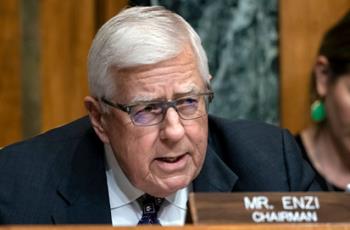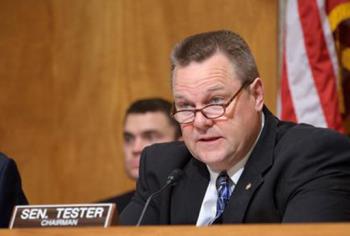 Senators Mike Enzi (R-WY) and John Tester (D-MT) introduced the Food Safety Modernization for Innovative Technologies Act (S. 3053). The proposed legislation would regularize the joint agreement between the Food and Drug Administration and the USDA. The former agency would oversee initial cell collection and culture with the USDA regulating production, further-processing and packaging. The USDA is expected to establish nomenclature for products including whether they can be labeled as “meat”. The intent of the legislators was for the FDA and the USDA to share information and collaborate in regulating cell-cultured meat. The Bill will be passed to the Senate Committee on Agriculture, Nutrition and Forestry for further consideration when Congress reconvenes.
Senators Mike Enzi (R-WY) and John Tester (D-MT) introduced the Food Safety Modernization for Innovative Technologies Act (S. 3053). The proposed legislation would regularize the joint agreement between the Food and Drug Administration and the USDA. The former agency would oversee initial cell collection and culture with the USDA regulating production, further-processing and packaging. The USDA is expected to establish nomenclature for products including whether they can be labeled as “meat”. The intent of the legislators was for the FDA and the USDA to share information and collaborate in regulating cell-cultured meat. The Bill will be passed to the Senate Committee on Agriculture, Nutrition and Forestry for further consideration when Congress reconvenes.
The agreement between FDA and USDA is essentially a compromise over turf and will delay any possible advance in the approval and commercialization of cell cultured meat substitutes. It is logical that the new technology should be regulated by a single agency to avoid gaps in regulations and misunderstandings that might lead to undesirable consequences and overlapping areas of jurisdiction. The justification for the bill advanced by the sponsors, both representing beef-producing states, is questionable. The initiative suggests inherent bias at best or a cynical attempt to impede  progress through legislation and framing of subsequent regulations. The parochialism of Senator Tester is evidenced by his advocacy of country-of-origin labeling for beef and pork and for declaratory label statements related to GM status.
progress through legislation and framing of subsequent regulations. The parochialism of Senator Tester is evidenced by his advocacy of country-of-origin labeling for beef and pork and for declaratory label statements related to GM status.
Irrespective of the outcome of the proposed legislation, the reality of cell-cultured meat is far in the future despite vast sums expended on research and development in both the U.S. and the EU.
For the foreseeable future, vegetable-based substitutes to meat and hybrid products comprising vegetable ingredients and meat will establish a strong market base effectively competing with cell-cultured meat at any stage in the future.
The need for two regulatory agencies to establish a modus vivendi structured as a compromise suggests the need for a single comprehensive Federal Food Safety Agency as advocated by Rep. Rosa de Lauro (D-CT) and Senator Dick Durbin (D-IL). A single agency would mirror the regulation of food in Canada, the U.K. and the EU. Artificial distinctions among foods currently present in the U.S. food system representing obstacles to regulatory action would be eliminated.
Given the establishment of a Federal Food Agency, The FDA would effectively become an agency regulating drugs and medical devices. The track record of the FDA with respect to both domestic and imported foods presents inadequacies despite passage of the Food Safety and Modernization Act and additional funding. If the USDA were to relinquish food inspection of red meat and poultry to be merged into a Food Safety Agency, their concentration would be on research, agricultural support programs and promotion of agriculture, removing the presumption of a pro-farmer bias in regulating the food chain.